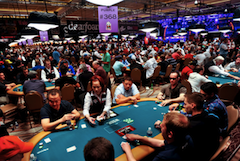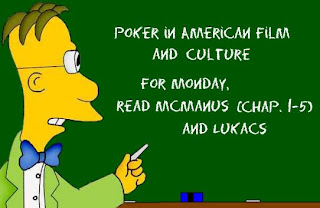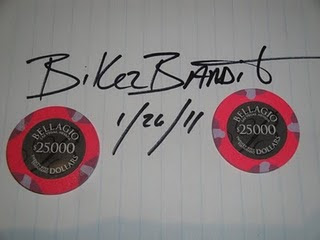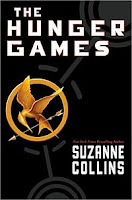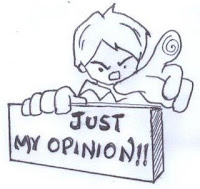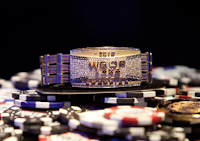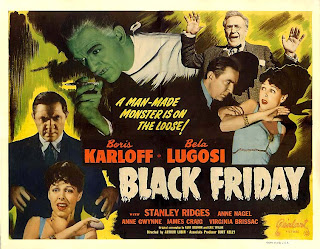Hard-Boiled Poker 2011 Year in Review (3 of 3)
September
 September began with still “More Full Tilt Poker Chatter.” About three weeks later came the DOJ’s amendment of the civil complaint, a moment almost as withering and disappointing as was Black Friday. Ended up writing a short sequence of posts then in response: “Full Tilt Poker a ‘Ponzi Scheme’ Says DOJ,” “What Does ‘Poker’ Mean Today?,” “Talk About Red Pros (More on the DOJ vs. Full Tilt Poker),” and “The Culture of Poker.”
September began with still “More Full Tilt Poker Chatter.” About three weeks later came the DOJ’s amendment of the civil complaint, a moment almost as withering and disappointing as was Black Friday. Ended up writing a short sequence of posts then in response: “Full Tilt Poker a ‘Ponzi Scheme’ Says DOJ,” “What Does ‘Poker’ Mean Today?,” “Talk About Red Pros (More on the DOJ vs. Full Tilt Poker),” and “The Culture of Poker.” A few September posts were inspired by visits to other’s blogs. I wrote “Talking Black Friday & Blame” after reading an interesting post on Bill Rini’s blog. Along similar lines, I responded to a post by Jesse May later in the month concerning Full Tilt mess and the sorry state of online poker, generally speaking, titling mine “What May Said.”
A Subject:Poker report about another possible DOJ action prompted “Another Online Poker e-MERGE-ncy.” And a tip by Brad “Otis” Willis sent me to Derrick Goold’s blog and a post about computer-generated content, after which I wrote “On ‘Roboreporting.’”
Weighed in on yet another online poker-related brouhaha in “Stop Counting Me! Bodog vs. Pokerscout.” The month then concluded with the Alderney Gambling Control Commission revoking FTP’s license, talked about in a post half-jokingly titled “Full Tilt Poker: Chapter the Last?” A day later came the possible buyout by Groupe Bernard Tapie surfaced, noted in “It’s Alive.”
October
 There’d be more FTP talk in October, of course. Kind of filled the space left by the lack of online poker and the waiting around for the November Nine.
There’d be more FTP talk in October, of course. Kind of filled the space left by the lack of online poker and the waiting around for the November Nine. In “The Perils of Learning As You Go,” I thought a little about the situation at FTP in which a number of folks kind of stumbled into running a multi-million dollar company. Badly. Some of those who’d been jettisoned from the Full Tilt family since Black Friday started piping up, and in “From the Department of Redundancy Department: Full Tilt Poker’s Ex-Employees Speaking Out” I chronicled some of that talk before a lot of it got deleted from the forums.
A long-awaited feature about online poker in the U.S. finally appeared in The New York Times that unfortunately fuzzed over or got wrong a number of aspects of the situation and story. Tried to explain why I thought so in “NY Times Online Poker Piece Misplays Hand” and “More On Skill-Vs.-Luck.”
October marked “Five Years of the UIGEA,” that ill-conceived law that has successfully twisted the poker world into the most tangled knot imaginable. Has certainly affected just about everything to do with my experiences writing about poker, something I reflected on some more in a post “On the ‘Industry.’”
Speaking of legal machinations, there was some talk on the Hill not long after that UIGEA anniversary passed, summarized in part in “House Hearing on ‘Internet Gaming’ Shows U.S. Online Poker a Complicated Game.” As we know, nothing would ultimately happen on a federal level in 2011, although the chatter today suggests we might be seeing some so-called “intrastate” online poker happening sooner than later.
November
 That said, I began November “In a Subjunctive Mood,” kind of a cynical response to all of the not-a-matter-of-if-but-when talk floating around with regard to the future of online poker.
That said, I began November “In a Subjunctive Mood,” kind of a cynical response to all of the not-a-matter-of-if-but-when talk floating around with regard to the future of online poker. Perhaps thankfully, the November Nine finally arrived, allowing us to focus on actual poker for a change. Leading up to the finale, I wrote about the “almost live” presentation of the final table. I also participated in the ESPN conference call a couple of days before. Then I did my own “almost live” blog of the play on November 6, added a few further “Impressions” of what happened as they played from nine to three, then added another “almost live” blog of the final day (November 8) when Pius Heinz won it all as the first German ever to take down the WSOP Main Event. Added one further post speculating about how the comprehensive coverage might have played to broader audience, titled “Making Stories That Make Sense.”
Looking back through the rest of the month’s posts, I’m seeing a wide variety of topics popping up, as reflected by post titles like “On Subscription Sites; or, A Penny for Your Thoughts,” “Strip Poker, Art, and Cultural Commentary,” and “The Rebranding of Poker.”
I lamented the passing of a great poker writer and good guy in “Barry Tanenbaum (1945-2011).” I won some small change in a couple of freerolls on Carbon Poker and looked upon the prospect of building my roll with an ironic reference to “The Chris Ferguson Challenge” (remember that?). And I wrote yet another post about poker’s embattled image in the broader culture in “Poker’s Stick-to-it-iveness.”
December
 Another month, and more scandal and controversy, variously discussed in “Talkin’ Bitar, Facebook, and Bodog,” “UB Data Leak,” and “A Man-Made Monster Is On the Loose! (Black Friday).”
Another month, and more scandal and controversy, variously discussed in “Talkin’ Bitar, Facebook, and Bodog,” “UB Data Leak,” and “A Man-Made Monster Is On the Loose! (Black Friday).” Bodog kind of stepped forward to try and usurp Full Tilt Poker’s rightful place as online poker’s most bewildering site in December. For more on that development, see “Bodogoholics Anonymous” and “The Bravado of Bovada.”
In “Please Be Patient” I meditated a bit about the “wait and see” attitude I realized was starting to creep into a lot of my posts -- my non-conclusive way of concluding discussions about various topics with loose ends that couldn’t be tied. And speaking of patience, a late, late night following a tourney on PokerStars and hand-for-hand reports from the latest Epic Poker League main event inspired post titled “Unlimited Hold’em” -- again kind of wondering aloud how much the detailed, comprehensive coverage of poker tourneys can possibly appeal to all but hardcore enthusiasts.
The big news from the final week of the year concerned this apparent reversal of position by the Department of Justice regarding the Wire Act, a shift which many are thinking might well herald a return of online poker in the U.S. I commented on the development in “Talkin’ the DOJ Letter and Nevada (The State of Online Poker)” and “Reports and Opinions (The DOJ Letter).”
Always a lot of interesting off-the-felt stuff to discuss in poker. Such is the game’s nature, producing a multitude of interesting characters and plots that often extend well beyond hands played and into other areas where we find ourselves interacting with one another.
 Still, seemed like 2011 saw us all thinking and writing more about such extracurricular activities than in past years. Here’s hoping we all get back to the tables in 2012 and have the chance to remember why it was we all got into poker in the first place.
Still, seemed like 2011 saw us all thinking and writing more about such extracurricular activities than in past years. Here’s hoping we all get back to the tables in 2012 and have the chance to remember why it was we all got into poker in the first place.Thanks again to everyone for coming back here time and again to read my musings about it all. See you on the other side.
Labels: *the rumble, 2011 Year in Review


